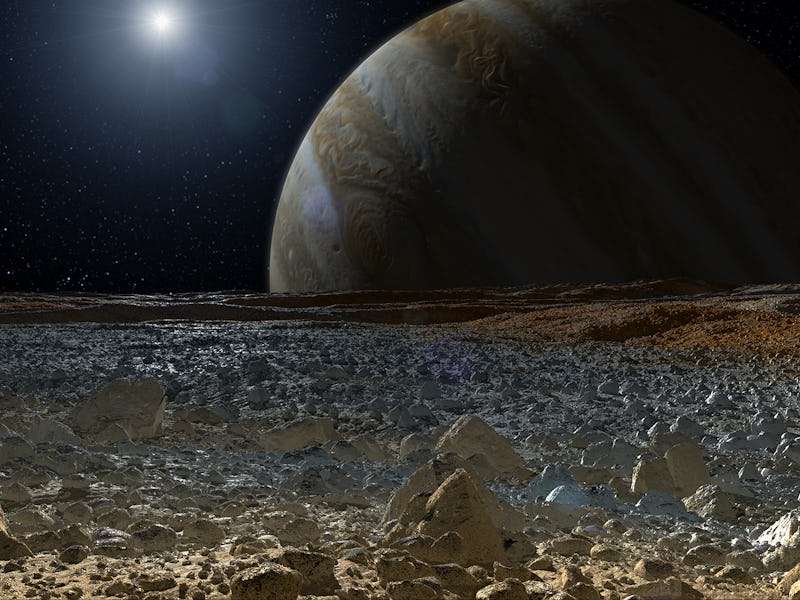Congress Gives NASA Some Serious Loot
The United States House of Representatives just allotted a bunch of billions to get some space projects moving, and relatively soon.

NASA got a financial boost from Congress Tuesday as it allocated the Space Agency billions of dollars toward future projects—but also put in deadlines and expects to be in the loop on progress.
Now public law, the “Consolidated Appropriations Act, 2016” explains how “necessary expenses of the Office of Science and Technology Policy” are going to get spent, and for what. One huge chunk of change—$5,589,400,000 to be exact, is to remain available until September 30, 2017 for NASA’s financial needs—but don’t think that leaves the door open to long-term, drawn-out pondering on possible projects, as Congress has expressed where some of the money must go (like part of that sum, but not more than $8,000,000,000, must go toward development of the James Webb Space Telescope.)
Congress is also showing interest in a future Europa mission—to explore the Jupiter moon believed to host a water ocean—by promising $175,000,000 toward building an orbiter and lander for such a journey, but must be ready “for a launch no later than 2022.”
The Orion Multi-Purpose Crew Vehicle also saw its resources expand as Congress has offered “not less than $1,270,000,000” to help make it a reality. Expected to carry crews to and from deep space beyond Earth’s orbit, it could one day enable missions to Mars or asteroids beyond the Red Planet.
All of this does bode well for NASA, but the agency must be frank on its project status as the funding law expresses “the National Aeronautics and Space Administration shall conduct audits of grants or contracts for which funds are appropriated by this Act, and shall submit reports to Congress on the progress of such audits, which may include preliminary findings and a description of areas of particular interest, within 180 days after initiating such an audit and every 180 days thereafter until any such audit is completed.”
In other words, NASA must share with Congress every 180 days where it’s at concerning its backed activities—giving the organization roughly six months to give updated progress details—and as it’s part of a law, the deadline is most-likely to be held firm.
Nonetheless, even if Congress seemingly views NASA’s doings with an air of mistrust, this could be a sign that the U.S. is heading toward an exciting period of space exploration over the next decade.